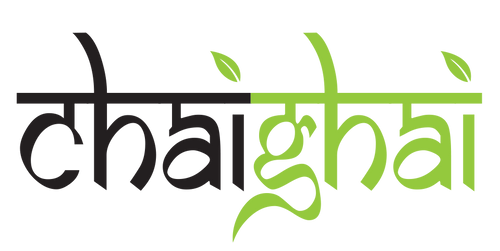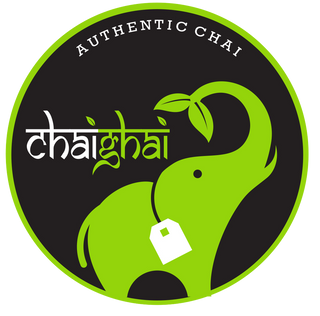When we nourish our bodies and minds it is important to understand what is entering us and its effect on our consciousness. Caffeine has many benefits, and plays an important role in most people’s daily lives. However, it doesn’t react well with everybody. Rooibos is a great organic alternative for decaf drinkers, as it still offers the body energy, while also energizing its 7 Chakras. Our Rooibos spin on authentic Chai, Belly Dancer offers the chance to elevate consciousness and expand the mind. Many of our customers prefer Belly Dancer as a nighttime Chai, as it contains spices such as Holy Basil (Tulsi) that work as an excellent post dinner digestive. Belly Dancer was designed to recharge the Manipura (Solar Plexus) Chakra. A disruption in any marketplace, such as Rooibos in the tea industry, almost always leads to its expansion, bringing with it new entrants. Here are the 3 key reasons why Rooibos is disrupting the tea industry; its health benefits, as an alternative to caffeine and marketplace expansion.
Origin and History of Rooibos

First let’s look at what Rooibos is exactly. Rooibos, literally meaning “red bush” in Afrikaans is a plant used to make a robust herbal tea-like beverage. It has become increasingly popular not just in its native South Africa, but also with health conscious consumers in the rest of the world. Rooibus leaves are grown in fynbos, a small belt of natural shrubbery, found in the Cederberg Mountains of South Africa. This relatively small area of vegetation is the source of all of the Rooibus tea distributed in the world and is responsible for approximately 15,000-20,000 tons of Rooibus production per year. It is an acutely bio-diverse region where Rooibus grows naturally and has been harvested for hundreds of years. During that time, Rooibos tea has been commercially popular within South Africa. Rooibos tea popularity first spiked globally during the 1990s, when Green Rooibos was first introduced. Its recognition has further increased since the early 2000s, as the impact of caffeine free hot beverages on mind, body and spiritual health has grown.

Rooibos comes in two distinct forms, the more traditional Red Rooibos and the much newer Green Rooibos. Green Rooibos is a less oxidized, unfermented version that has higher levels of antioxidants when compared with traditional Red Rooibos. Both versions offer properties that promote energy which work to align the 7 Chakras. Authentic Rooibos tea can be characterized as profiling with a predominantly earthy flavour with distinctive notes of vanilla and a slightly bitter taste, not unlike tobacco. It also has lower tannin levels when measured up against other black teas, even though it has a woody, astringent taste. Authentic Green Rooibos has a slight grassy flavour, also akin to malt. Though Rooibus tea retains its popularity in South Africa it has seen a large increase in recognition in North America, Japan and Europe, which now account for 80% of Rooibus tea sold in the world. Rooibos is ingrained in the culture of South Africa and through the globalization of the tea industry can be shared with the outside world.

Rooibos tea profits will be shared with Indigenous communities in landmark agreement (nature.com)
1.) Health Benefits

Although tea has many health benefits, its alternative Rooibos, offers similar perks without the caffeine. Since it is caffeine free and contains less tannins than black tea it can absorb more nutrients. Rooibos packs a strong punch for those who do not drink caffeine and wish to increase their intake of minerals. These natural minerals work to balance the Chakras and increase oneness. Rooibos also contains no oxalic acid which reduces mineral absorption and the chance of kidney stones. Since Rooibos is grown using neither pesticides nor artificial fertilizers, the harvesting of Rooibos can be certified as organic, which is a great boon to not only the health of its consumer, but to its broad marketability in the hot beverage industry as well.

5 Health Benefits of Rooibos Tea (Plus Side Effects) (healthline.com)
Rooibos is high in antioxidants containing Aspalathin, Quercetin and Luteolin which work to combat heart disease and cancer. Aspalathin, a Rooibos flavonoid, has the potential to reduce diabetes by lessening vascular inflammation and atherosclerosis, the formation of cholesterol in the artery walls. Quercetin, another plant pigment found in Rooibos has potential uses in heart health as well, helping to eliminate free radicals. Luteolin, a flavone with anti-inflammatory properties can also be use in cancer prevention.

Antioxidants further promote greater spiritual health by unblocking toxins that obstruct the 7 Chakras. Through these antioxidants Rooibos can have positive effects on blood pressure, while also working to improve cholesterol levels. These qualities create health benefits through hydration, while not feeding on the body’s own energy, as caffeine rich drinks sometimes do. Instead Rooibos tea offers all of the above health properties in an energy providing beverage. Rooibos tea can uplift the mind and body, providing more than just a pick me up. As a result of the health benefits outlined previously Rooibos can strengthen the mind body connection, enhancing life through our spiritual lens.
2.) Caffeine Free

Each body is different and responds differently to the nourishment we put in it. Caffeine is a clear example of this and as a result decaffeinated teas have expanded the tea market over the past few years. Furthermore, as consumers have become increasingly conscious of mind, body and spiritual health, organic products have made a larger advancement in the marketplace. These trends are key reasons for the disruption Rooibos has created in the tea industry. As a traditional herbal tea Rooibos contains no caffeine. In addition the versatility that Rooibos offers, due to its antioxidant qualities, has really propelled it into the spotlight of the hot beverage industry. For these reasons, as a trendsetter in the industry, Rooibos tea continues its forward march to greater recognition. As people look for different caffeine free energy rich beverage options, Rooibos has proven itself as a more accepted and well known contender. Where traditionally tea or coffee have been the overwhelming choice in the hot beverage industry, Rooibos has steadily been gaining a foothold as another alternative to revitalize the mind body connection.

(PDF) Fact Sheet on Rooibos Tea (researchgate.net)
As the popularity of Rooibos has expanded out of South Africa over the last 25 years, it has been used more specifically to create other tea adjacent beverages such as non caffeinated espressos, lattes and cappuccinos, that seek to simulate the notion of tea or coffee, while not actually containing caffeine. This diversification of the way that Rooibos is used to make hot beverages has disrupted its marketplace, expanding it from one dominated by tea or coffee. Drinking Rooibos tea offers a similar beverage experience without the caffeine crash. It also gives people who previously didn’t drink either tea or coffee another hot beverage to choose from. Our own Belly Dancer Chai, is a Rooibos infused example of a beverage designed to open up the 7 Chakras. Rooibos has thus changed how people consume hot beverages by offering an alternative that has begun to take an increasingly larger piece of the tea industry pie. As Rooibos tea continues to pop up in more trendy markets, with a larger variety of blends to choose from, tea drinkers have given it more attention. As an organic plant that helps ground us, Rooibos can help you find your roots on this wonderful planet.

Demand for Healthy, Specialty Teas | SA Rooibos Council
3.) Expansion of Market

With the Rooibos tea market growing steadily out of South Africa it has carved its place in the world tea marketplace by reaching 10% of the global herbal tea market. This market has grown by a fast pace, up to 50% in some areas of Europe over the past 15 years. While still on a relatively small scale when viewing the entire worldwide tea landscape, the fact that Rooibos tea is harvested and manufactured in such a small and specific part of the world makes its growth and impact impressive. In a similar way that decaf disrupted the coffee industry; Rooibos has really helped to opened up the hot beverage marketplace. To borrow examples from other industries, Uber and Air BnB expanded the transportation and accommodation marketplace. These options were instrumental in bringing new users to their respective industries through value, comfort and accessibility. Rooibos tea, with its versatility has been making inroads in much the same way and has a chance to further its reach by continuing its diversification of the marketplace, through similar upward mobility.
Rooibos Tea Market Value Chain Profile 2016.pdf (nda.agric.za)

With a forecast trending up, Rooibos tea has more growth to make in the hot beverage industry. Rooibos tea has presented itself as a caffeine free hot beverage option for Middle Eastern and Asian countries, where caffeine has traditionally been consumed in most teas. As a result, countries in these areas where tea is an important part of daily life will continue to look at Rooibos as an alternative beverage in the quest for mind body connection. Pairing Rooibos with popular and healthy herbs and spices has further created the growth in demand the Rooibos tea industry has experienced. This versatility varies in impact from country to country. Where as in America the number of different blends is high, Japan enjoys up to 90% of its tea unblended. Since Rooibos tea has varieties to offer in both options, it is a high-quality choice for either. Furthermore, by 2015 Rooibos tea consisted of 30% of the herbal tea market in Germany and had increased by 300% in the UK, showing tremendous growth. The more Rooibos tea’s marketability increases, due to its capacity to be branded as an organic or gourmet option in the industry, the better it can carve its niche in the market, as its own distinct beverage.

Rooibos Tea Market - Global Industry Analysis 2026 (transparencymarketresearch.com)
Rooibos based hot beverages have really opened up the marketplace to include another contender in an industry so long governed by its reliance on tea or coffee. The versatility that Rooibos offers as a caffeine free beverage allows it to fit well into various tea markets in different countries around the world. Couple that with Rooibos tea’s abundant health benefits and the way that it is authentically grown, harvested and manufactured and Rooibos really offers great options to consumers who don’t drink caffeine. Our caffeine free Belly Dancer blend, rich in Rooibos is such an option to nourish mind, body and spiritual health through opening the 7 Chakras. The tea industry is a giant, with over 2 billion cups consumed a day. For Rooibos to grow so quickly internationally, in a relatively short period of time shows its quality and potential for future steady or accelerated market growth. As we consider what we put in our body, we must also consider what it does to expand our consciousness without depleting it in the future.




